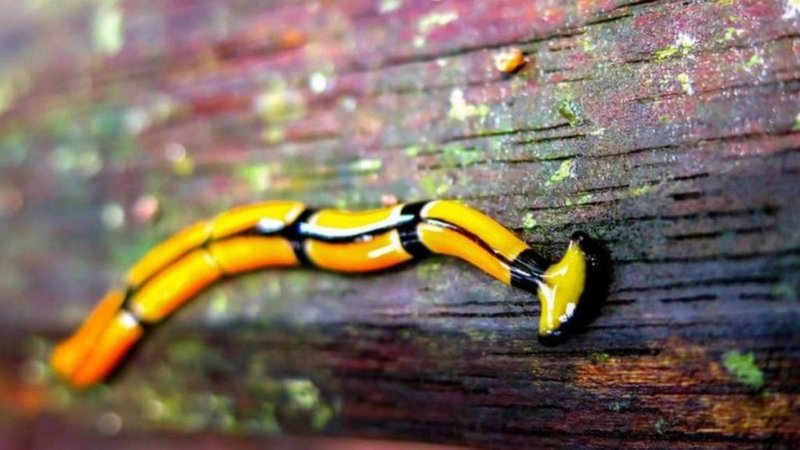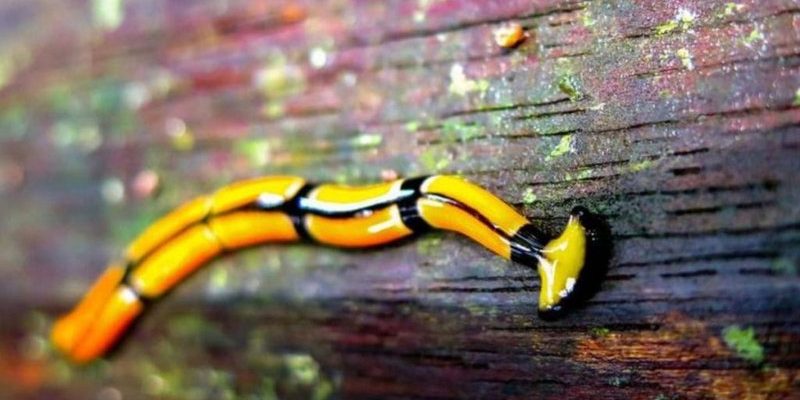
Picture this: Your garden is a bustling mini-ecosystem, full of life. The plants are thriving, the earthworms are doing their part in aerating the soil, and everything seems right. But then, out pops a hammerhead worm, looking to disrupt the balance. Luckily, nature has a way of regulating itself. Different animals and insects prey on these hammerhead worms, helping maintain the harmony of your garden. Let’s explore who these heroes are and how they’re essential in controlling hammerhead worm populations.
Understanding the Hammerhead Worm
Before diving into the predators, it’s essential to know a bit about the hammerhead worm itself. These creatures, scientifically known as *Bipalium* species, are recognizable by their flattened, broad heads that resemble a hammer. They can often be found in tropical and subtropical regions but have made their way to various parts of the world.
Typically, these worms are nocturnal hunters that thrive in moist soil, feeding on earthworms and other small invertebrates. This diet can lead to a decline in beneficial worm populations, which can negatively impact soil health. You might be wondering, why are these worms such a big deal? Well, their presence can disturb the delicate balance of our gardens, making it crucial to address their numbers without using harmful chemicals. This is where natural predators step in.
1. Birds: Nature’s Watchful Hunters
One of the most effective natural predators of hammerhead worms are birds. Many bird species, especially those that hunt for insects and small creatures, will happily snack on these worms. Think of birds as nature’s pest controllers, equipped with keen eyesight and quick movements to catch their prey.
Birds like robins, sparrows, and starlings often forage in gardens and can easily spot hammerhead worms in the soil. It’s interesting to note that their varied diets help maintain a healthy balance, as they not only eat worms but also pests that can harm your plants. So, inviting more birds into your garden by adding a bird feeder or a bird bath can be a great way to control the hammerhead worm population naturally.
Encouraging Birds in Your Garden
To attract birds, you can make simple changes:
- Install bird feeders filled with seeds.
- Offer fresh water in bird baths.
- Plant native species that provide shelter and food.
When birds feel welcome, they’ll be more likely to visit frequently, helping keep those hammerhead worm numbers low.
2. Nematodes: Tiny But Mighty
Let’s talk about nematodes—tiny, often microscopic worms that are a natural predator to various soil pests, including hammerhead worms. These little guys are an essential part of the soil ecosystem, helping to control pest populations.
Nematodes work quietly, hunting down hammerhead worms and invading their bodies, ultimately leading to the worms’ demise. When you think about it, it’s a bit like a stealthy ninja approach in the soil—small but incredibly effective.
Using Beneficial Nematodes
If you’re looking to harness the power of nematodes in your garden, here’s how to do it:
- Purchase beneficial nematodes from a garden supply store.
- Apply them to the moist soil during the evening hours.
- Ensure consistent moisture in the soil for them to thrive.
By introducing these nematodes, you create a natural defense system against hammerhead worms, allowing your garden to flourish.
3. Ground Beetles: The Garden Guardians
Ground beetles are another fantastic ally in the fight against hammerhead worms. These insects are typically found on the ground, where they hunt and feed on various pests, including worms. With their strong jaws and speedy movements, they can quickly locate and consume hammerhead worms, keeping their populations in check.
What’s great about ground beetles is that they thrive in healthy gardens. They prefer well-structured soil and abundant organic matter, which means if you’re cultivating healthy soil, you’re likely to attract more of these beneficial beetles.
Creating a Beetle-Friendly Environment
To encourage ground beetles, consider:
- Avoiding chemical pesticides that can harm beneficial insects.
- Adding mulch to your garden to provide shelter.
- Planting diverse crops to attract a variety of beetles.
When you create a welcoming environment, you’re not just helping ground beetles; you’re fostering a vibrant garden ecosystem.
4. Frogs and Toads: Nature’s Pest Controllers
Frogs and toads are often underappreciated in the gardening world. These amphibians are excellent at keeping pesky pests, including hammerhead worms, at bay. They eat various insects, slugs, and worms, making them valuable partners in maintaining a balanced ecosystem.
Imagine stepping into your garden during dusk and hearing the croaks and calls of frogs. Not only are they charming, but they’re also hard at work, controlling the populations of many unwanted pests.
Attracting Frogs and Toads to Your Garden
To lure these creatures into your space, try the following:
- Install a small pond or water feature.
- Provide plenty of shaded areas for hiding.
- Avoid using harsh chemicals that can harm them.
With a little effort, you can turn your garden into a frog-friendly haven, letting them do the heavy lifting in pest control.
5. Spiders: Nature’s Silent Predators
Lastly, let’s not forget about spiders. While they might give some people the creeps, spiders are fantastic predators, helping to keep hammerhead worm populations down. Many spiders spin webs that can capture small insects and even worms, making them an integral part of the food chain.
Moreover, spiders contribute to the overall health of ecosystems by controlling populations of various pests. So, while they may be hiding in the corners of your garden, they’re actively working behind the scenes.
Encouraging Spiders in the Garden
To make your garden more spider-friendly:
- Provide plenty of ground cover and foliage for nesting.
- Avoid cleaning up too much debris, as this can remove their habitats.
- Embrace the natural balance, letting spiders thrive without interference.
By allowing spiders to coexist in your garden, you’re supporting the natural order, which can help manage hammerhead worms effectively.
In the grand scheme of gardening, controlling hammerhead worms doesn’t have to rely on chemical interventions. Instead, you can partner with nature’s predators—birds, nematodes, ground beetles, frogs, toads, and spiders—to maintain a healthy ecosystem. By inviting these natural allies into your garden, you not only protect your plants but also foster a balanced, thriving environment.
Remember, every little bit counts. By making simple changes and embracing the creatures that help your garden flourish, you can enjoy a vibrant ecosystem that thrives naturally. So, next time you spot a hammerhead worm, just know nature has a few tricks up its sleeve to keep them at bay!

